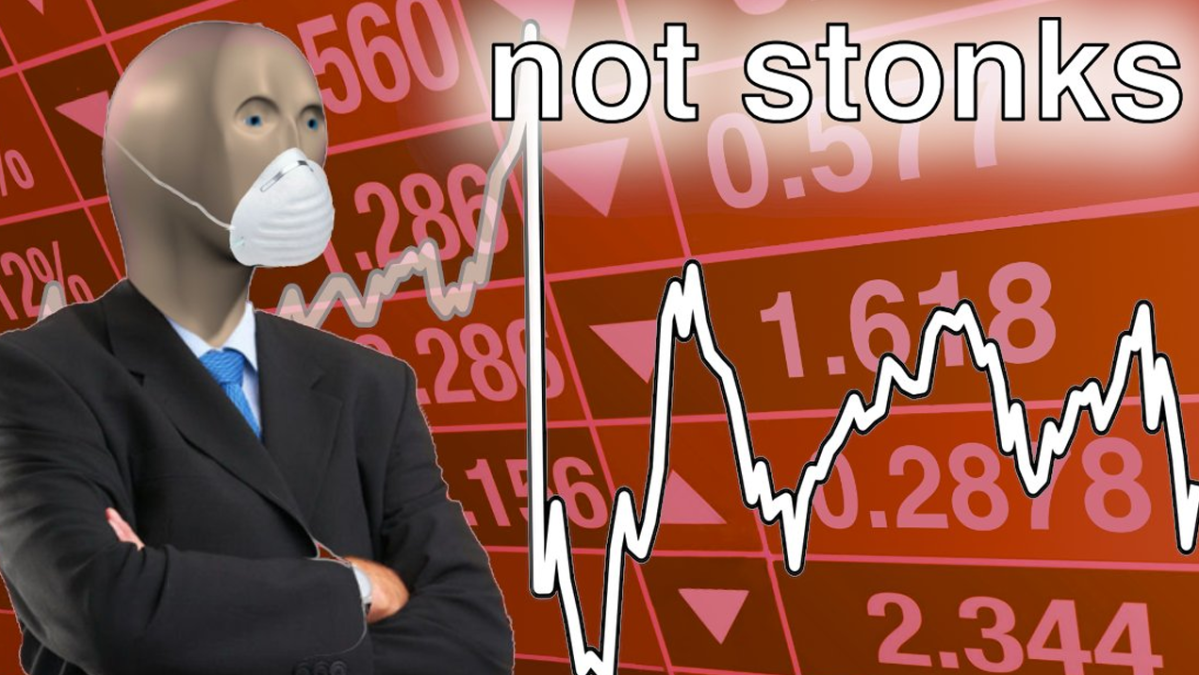
Australia has officially entered its first recession in 30 years. For many of us, it’s the first recession we’ve ever experienced and heaps of us are wondering how bad it could be.
As it turns out, there’s a few good reasons why we need to prepare now.
The Australian Bureau of Statistics (ABS) revealed the nation’s gross domestic product (GDP) nose-dived by 7% in the June quarter, the largest dip in a single quarter since records began in 1959.
Just as many young people think they’re less likely to get the virus, many also think they’re somehow immune from a recession. Neither of these are true, economic commentator Saul Eslake told PEDESTRIAN.TV.
In Australia, a recession is defined as two quarters in a row where the economy shrinks. That means fewer jobs and lower incomes across the board, but, in this instance, young people will be among the worst affected.
The good(ish) news is that thanks to Australia keeping the pandemic relatively under control, the Organisation for Economic Cooperation and Development (OECD) reckons our economy will be less effected than heaps of other countries. The bad news is that things still won’t be great.
In case you didn’t notice, the coronavirus pandemic has more or less shut the nation (and the world) down. People have lost their jobs, while others have stopped spending so much money. However, even as the lockdown lifts and things start to open up again, the economy will still be screwed – that’s the recession.
“Economic activity shut down then the government locked us down, which is basically unprecedented in modern times, so our model recession and thinking about depression are hard to apply, because it’s basically never happened,” James Hennessy, editor of Business Insider Australia said.
Here’s how a recession could affect your everyday life, and what you can do to prepare.
Job losses
This one was kind of obvious, but it must be said: a lot of young Aussies have already lost their jobs, and that may well continue for a little while more.
The industries seeing the most job losses thanks to the lockdowns are ones which tend to employ more young people – think hospo, tourism, the arts, and non-essential retail.
“Make no mistake, this current recession that we’re in right now was accelerated by the lockdown,” Hennessy said.
This was a one-two punch to the economy, with people simultaneously not spending and not working almost overnight.
Even outside of these specific industries, young people are among the most vulnerable to losing their job. That’s because employers often follow a “last on, first off” system where then newest employees are first to go and the employees who’ve been there the longest are more likely to keep their jobs.
For obvious reasons, young people just entering the workforce are more likely to be new employees rather than long-term staff members.
Your savings (and super) may suffer
Unlike previous recessions, there are a lot of lockdown-specific handouts coming from the government. However, young people are less eligible for government support, meaning they’re more likely to dip into their savings.
There’s also the matter of dipping into your super. According to the Treasury, over 463,000 Aussies under 30 have done so already.
“That has really long-term consequences because they’re missing out on the returns which would’ve otherwise been generated,” Eslake said.
“The money you put aside in your 20s may well contribute more to your retirement savings than the money you put away later.”
This could be disastrous for your savings come retirement. While some people will have no choice but to access their super early, if you can, leave it alone.
The recovery will be much slower than the crash
While the worst of the job losses likely ended in May, the recovery will be a long slog.
“You go down the elevator and go up the stairs,” Eslake said, describing Australia’s current recession.
“We fell into this very quickly, the number of people who lost their jobs between March and April was enormous.”
The job market will heal gradually, he said, and even then, we probably won’t be getting as many hours or as high wages.
“People who lose their jobs and aren’t able to go back to work quickly tend to really struggle to find work,” Eslake added.
Your qualifications could become less useful
If you’ve studied or trained in a field like tourism, you may come to find some of your skills and qualifications to be useless when things do start to recover.
“Some of the study or training that young people have done could become redundant,” Eslake told P.TV.
We’ve already seen industries like hospo radically change to meet the needs of social distancing, but some of these changes might end up being permanent. If that’s the case, employers could be looking for slightly different skillsets down the line.
There’s also the issued of forgetting shit while you’re off work.
It might sound silly, but many economists are really concerned about a “skills atrophy” affecting young people. That’s a fancy way of saying people’s skills decrease when they’re out of work for long periods.
This means by the time you’re ready to go back to work, your skills simply aren’t up to scratch and you can’t effectively do the job.
Travel won’t be the same
People who have to dip into their savings won’t really have a travel budget, while people who are able to avoid touching their savings might be safer if they just put off travel for the time being.
And if you think you can just work in bars or hostels to support yourself around the work, consider this: pretty much every other country will be worse-off than Australia, so your skills will be in even less demand there than they already are here.
The one possible but very minor upside could potentially be that airlines reduce fares to encourage people to fly again. We’ll have to wait for international borders to reopen before we can see how that pans out.
Here’s what you can do
For many, our circumstances will be pretty much out of our control in the coming months. However, there are a few things you can do in order to be best-positioned once things start to improve.
While it’s not the most fun answer, one of the best things to do at the moment is get back to work ASAP. The more time you spend out of job, the harder it’ll be to find one. (Yes, we know this advice is much, much easier said than done.)
Upskilling is always a good thing, especially at a time like this. When we exit the recession, the job market will be more competitive than ever so it pays to have an edge.
Penny-pinching is also more important than ever. If you have a job, make the most of it and save up for a safety net. If you’re out of work, you’re probably already across cutting down on spending until you find work again.
Finally, do anything you can to avoid dipping into your savings (or your super!).
If you can’t pay rent, it’s better to move back home (if possible, of course) than to essentially fork our your hard-earned super to your landlord. It might not be the most ideal situation, but you’ll be thanking your younger self way down the line.



